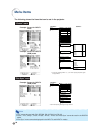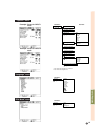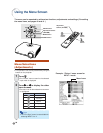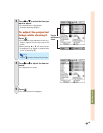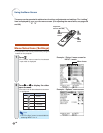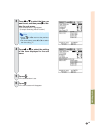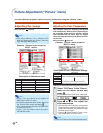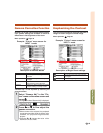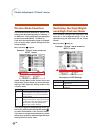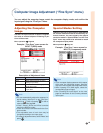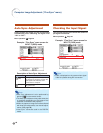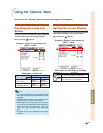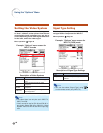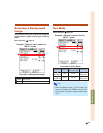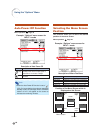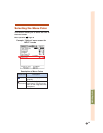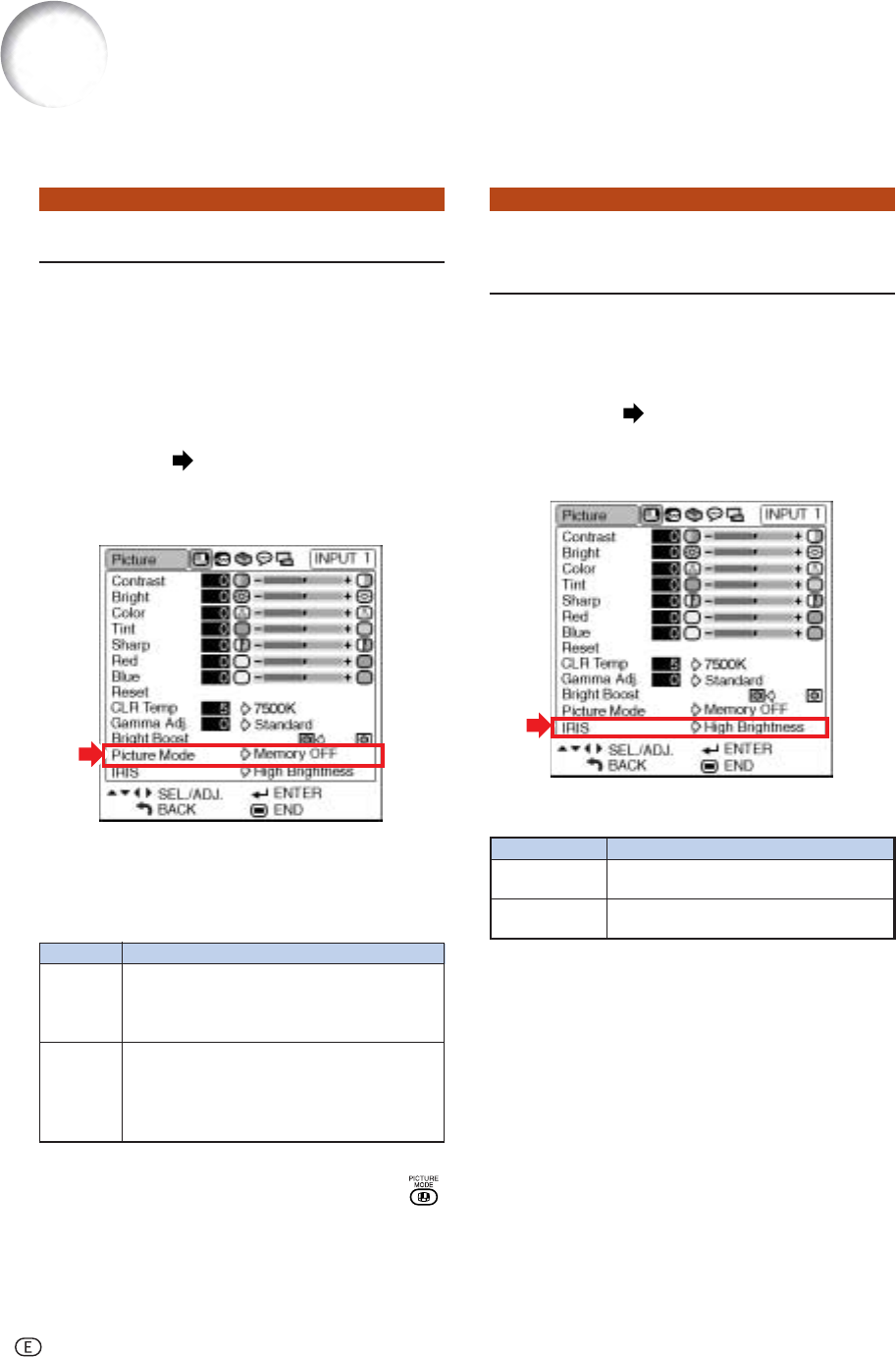
-44
Picture Mode Function
This function stores all items set in “Picture”. Five
settings can be stored separately in “Memory 1”
to “Memory 5”. Each stored setting is reassigned
to each input mode (INPUT 1 to INPUT 5).
Even when the input mode or signal is changed,
you can easily select optimal settings from the
stored settings.
Menu operation Page 40
Example: “Picture” menu screen for
INPUT 1 mode
Select “Picture Mode” on the “Picture” menu and
the memory location where you want to store the
settings. Then adjust the setting items on the
“Picture” menu.
If you want to apply the stored settings on the “Pic-
ture” menu, select input mode and then press
,
or select “Picture Mode” in the “Picture” menu.
If you want to change the stored settings, select
the memory location for those settings and make
settings on the “Picture” menu.
Picture Mode
Memory
1-5
Memory
OFF
Description
Settings of all items in “Picture” can be stored
for the respective input modes. The stored
settings (Memory 1 to 5) can be selected in
any input modes.
Besides “Memory 1” to “Memory 5”, other
settings on the “Picture” menu can be stored
for each input mode. The settings stored in
“Memory OFF” cannot be applied when
another input mode is selected.
Switching the High Bright-
ness/High Contrast Mode
This function changes the brightness and
contrast of the projected image. It can be
operated using the IRIS button on the remote
control.
Menu operation Page 40
Example: “Picture” menu screen for
INPUT 1 mode
Description of IRIS Settings
Selectable items
High Brightness
High Contrast
Description
High brightness is given priority over
high contrast.
High contrast is given priority over high
brightness.
Picture Adjustment (“Picture” menu)



